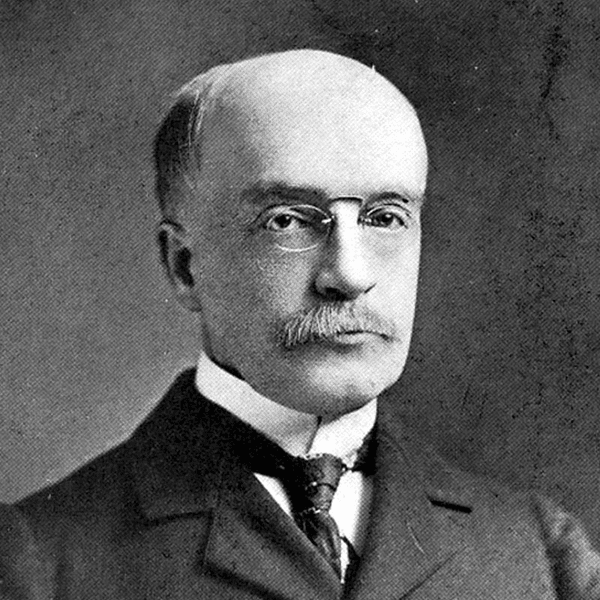Presidential Address
Old Standards of Public Morals
In Memoriam
From the American Historical Review 37:4 (July 1932)
John Bach McMaster (June 29, 1852–May 24, 1932) died on May 24 of pneumonia, at the home of his son, Dr. Philip McMaster, after a long period of heart affection dating from an attack at his home in Philadelphia in November, 1931. He was, at his death, within a month of 80 years of age. Professor McMaster was born in Brooklyn, N. Y., in 1852, graduated in Liberal Arts in the College of the City of New York in 1872, and remained there as instructor in English for a year. He then studied civil engineering and in 1877 became instructor in that subject at Princeton University. He remained for six years, during which he went on several expeditions sent to identify and survey various historical localities. On one of these expeditions into the West, he was struck, as he told the writer of this note, with the drama of the settlement of a new land, the creation of a new empire, and determined to write its history before the spirit of the period was gone. It was in this way that he began to write the History of the People of the United States. Professor McMaster’s most marked mental characteristics were his originality and individuality. They were shown in this work by the distinctiveness of the aspect of history he chose, by the use of a group of sources, preeminently the newspapers, not used to any extent by earlier historians, and by the adoption of a glowing descriptive and narrative style well suited to his subject. His writings amount to some sixteen volumes, besides many scattered articles and textbooks. His later works have not the verve, the originality of treatment, or the interest of the eight volumes of the History of the People of the United States. He shows the lack of the large original conception which gave shape to that work. When the first volume appeared, in 1883, the Wharton School had just been founded at the University of Pennsylvania and McMaster was called to be professor of American history, one of the first teachers devoting himself solely to that subject in the United States. He remained at Pennsylvania until his retirement in 1922, exerting a deep influence on a long succession of graduate students. He was one of the early members of the American Historical Association, and a member of the first Board of Editors of this journal. He was president of the Association in 1905, and delivered a notable address on “Old Standards of Public Morals.”
Bibliography
Benjamin Franklin as a man of letters. By John Bach McMaster. Boston: Houghton, Mifflin and Company, 1887; Reprint, New York: Arno, 1970; Reprint, with an introduction by Larzer Ziff. New York: Chelsea House, 1980.
Pennsylvania and the federal Constitution, 1787-1788. Edited by John Bach
McMaster and Frederick D. Stone. Philadelphia: Pub. for the subscribers by the Historical society of Pennsylvania, 1888.
The origin, meaning and application of the Monroe doctrine. Philadelphia, H. Altemus, 1896.
With the fathers: studies in the history of the United States. By John Bach McMaster. New York: D. Appleton and Company, 1896; Reprint, New York, B. Blom, 1971.
Geography of Oregon. New York, American Book Co., 1897.
A primary history of the United States. By John Bach McMaster. New York: Cincinnati: American book company, 1901.
Daniel Webster. New York: Century, 1902.
Modern development of the New world. By John Fiske and John Bach McMaster. Philadelphia, New York, Lea brothers & company, 1905.
A history of the people of the United States: from the revolution to the civil war. By John Bach McMaster. New York: D. Appleton, 1911-14.
The life and times of Stephen Girard, mariner and merchant. Philadelphia, London: Lippincott, 1918.
The United States in the world war (1918-1920). By John Bach McMaster. New York, London: D. Appleton and Company, 1920.
Our house divided; a history of the people of the United States during Lincoln’s administration. With an introduction by Philip Van Doren Stern. Greenwich, Conn., Fawcett Publications, 1961.
